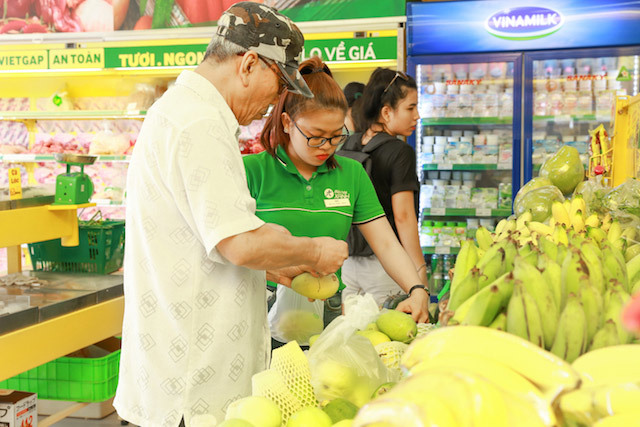 |
The scale of the nation’s retail market has grown rapidly in recent years, from US$88 billion in 2010 to US$130 billion in 2019, and is set to grow to an estimated US$179 billion by 2020, according to the General Statistics Office under the Ministry of Planning and Investment
With a large and young population of over 90 million people, the rural market remains open for retail businesses as the modern retail channels currently account for approximately 20 per cent of the country’s market shares.
Therefore, there is great potential for the domestic retail market to become a magnet for investment from both domestic and international sources.
Despite these positives, the openness of the economy has resulted in a number of major retail distributors, including domestic and foreign enterprises, creating fiercer competition within the local market.
Major foreign corporations such as Auchan, Family Mart, Lotte, Central Group, Aeon, Circle K, and K Mart have all been attempting to expand their share in the local retail market.
In spite of great potential, a race has emerged among domestic enterprises and foreign direct investment (FDI) firms who are attempting to gain a greater market share, with convenience and grocery stores facing increasingly tough competition.
The rapid expansion of foreign distributors has exerted an enormous pressure on local retailers with the domestic retail system being at risk of manipulation from foreign enterprises. This is because large foreign enterprises have been constantly increasing their market share and are poised to continue this policy of expansion in the future.
According to Vu Vinh Phu, a retail industry expert, FDI retail businesses have enjoyed strong development in recent years and have many advantages in comparison to local enterprises.
Foreign businesses enjoy strengths in terms of capital, business technology, corporate governance, in addition to global purchasing and distribution chains, whilst systematic investment plans have seen them rapidly grow to hold 53 per cent of the market share.
In contrast, domestic firms suffer from a number of inadequacies such as a lack of connectivity when joining the retail market, a shortage of capital sources, small scale, and a lack of professional management capability, all of which leads to weaker levels of competitiveness.
As a means of providing sustainable and rapid development within the retail market, Phu emphasised the need to support trade promotion activities whilst expanding markets and developing retail brands aimed at enhancing the competitiveness of local goods within the domestic market.
According to the Ministry of Industry and Trade (MoIT), increasing numbers of foreign retailers are keen to enter the Vietnamese market in recent time.
As a result, it is projected that the impact of the FDI sector on the country’s retail market will increase whilst directly affecting the development of domestic production and distribution in the near future.
Therefore, in the short to medium term, the MoIT is poised to finalise relevant legal regulations and put policies in place.
Recently, the MoIT has reported to the government that legal regulations must be revamped in order to enhance the state’s management of the retail distribution activities of FDI enterprises. This includes the activities of setting up retail establishments and developing retail chains.
Along with support from the MoIT, domestic retail businesses need to continue to improve the overall quality of their customer service, product quality and diversification in order to make breakthroughs and compete with FDI enterprises over the long term. VOV

Traditional retailers face difficulties given digital era
The recent emergence of e-commerce and online payments has posed a great challenge for traditional retail giants.

F&B to drive retail property market in HCM City
Food and beverage and fashion and lifestyle will continue to drive demand in HCM City’s retail property market, according to real estate consultancies.
 Local retail businesses should focus on developing their own brands, improving the product quality and diversifying products in order to enhance their competitiveness in the domestic market.
Local retail businesses should focus on developing their own brands, improving the product quality and diversifying products in order to enhance their competitiveness in the domestic market.